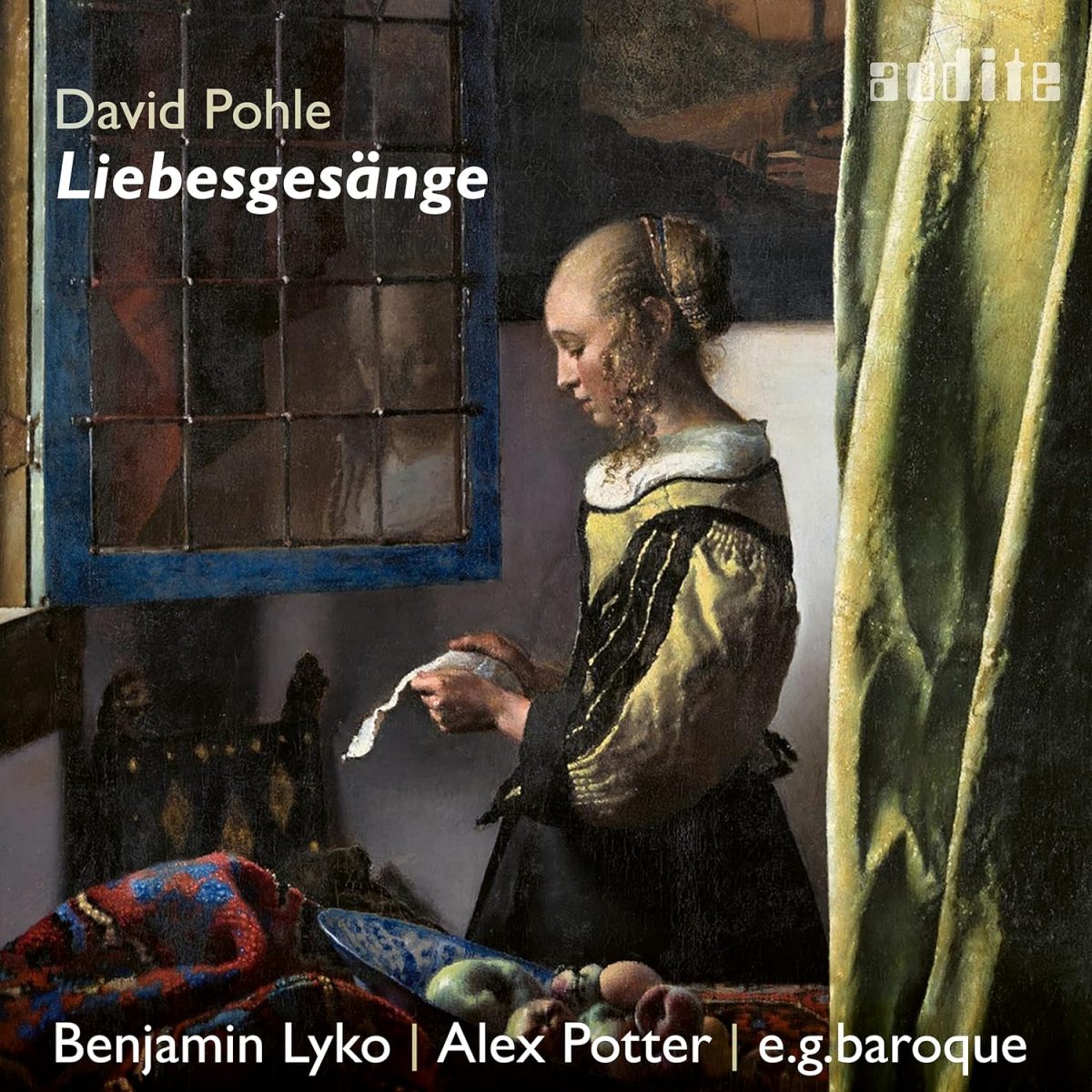Benjamin Lyko, Alex Potter, e.g.baroque
61:19
audite aud 97.803
61:19
audite aud 97.803
While Pohle’s instrumental music is gaining popularity (partly through my own efforts to publish his surviving output, as well as his complete church music, in collaboration with Gottfried Gille and Anna-Juliane Peetz-Ullman), his other output is relatively unknown. The present CD presents a set of 12 love songs for altos with a pair of violins and continuo, originally dedicated to the composer’s new employer, Wilhelm VI of Hesse-Kassel. These are not duets in the sense of lovers singing to one another. Rather, the two voices present the same texts in alternation, imitation, and intertwining counterpoint. Sometimes, they are strophic with violin ritornelli; in others, Pohle uses the same bassline but varies the melodic line (much as Buxtehude would later do in “Membra Jesu nostri”), while the violins join with the voices in yet others. And the violin parts are not mere fillers – the 11th song, “Will sie nicht”, demands some very virtuosic scales! Paul Fleming’s texts tell of his unhappy love life; the first sister that he fell in love with (in Tallinn, as Reval is known to English speakers) married someone else in his absence, then on his way to marry her sister, he died, aged only 30. They are printed in the booklet without translations, which unfortunately – I suspect – will put some people off buying what is a fine CD. Lyko and Potter’s voices are a good match, the former possibly a little edgy at the top of his range. Both declaim the texts well and produce a lovely warm sound. The sequence of songs is broken by the first of a set of 12 trio sonatas by Pohle’s successor as Kapellmeister in Halle, Johann Philipp Krieger. There was space on the disc for more of the set (which has been recorded complete).
Apologies to the musicians and the recording company for the delay in reviewing this wonderful recording; I have just found it in a box that was put in my attic (and “lost”!) when I moved house.
Brian Clark
